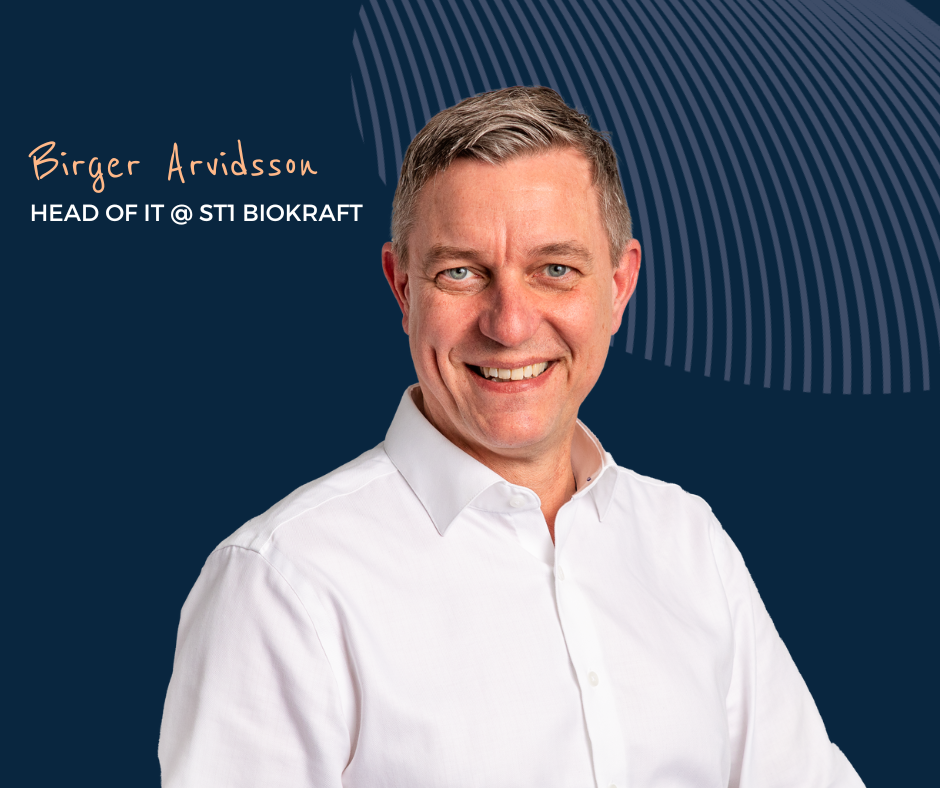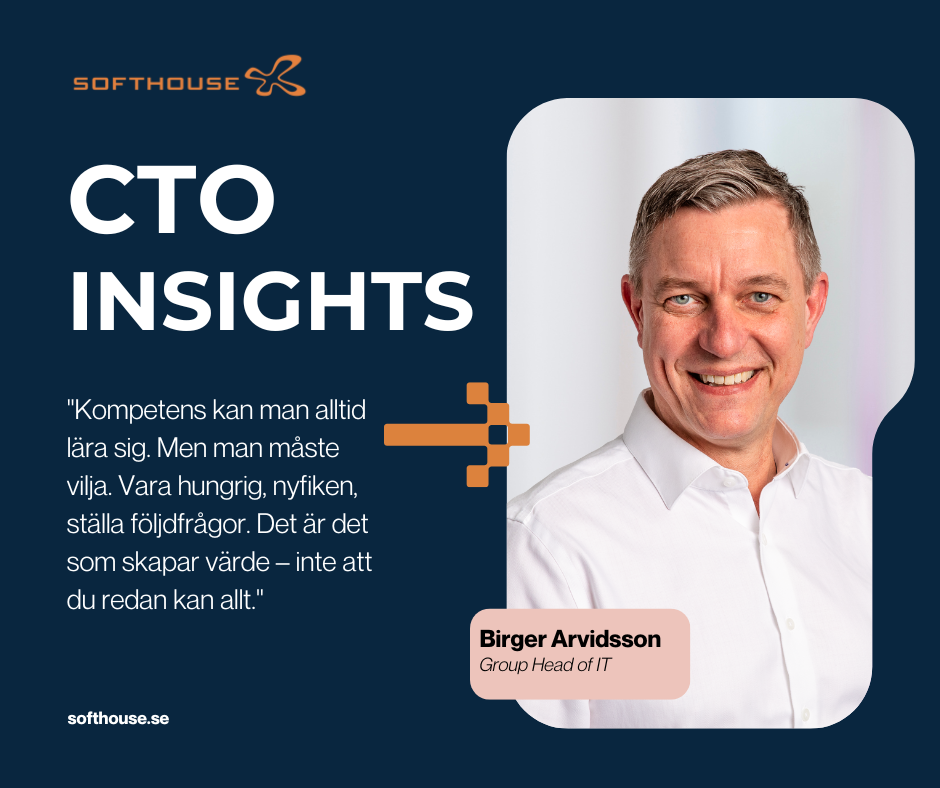
With a background far from traditional IT, Birger Arvidsson has found strength in curiosity, initiative, and humility. Today, he leads the digital transformation at St1 Biokraft – where IT strategy, production, sustainability, and human values all come together.

Birger Arvidsson began his career as a mechanical technician – far from data centers and strategic IT programs. But with a strong drive to understand how things work, he stepped into the IT world back in 1993. Since then, he’s helped build several IT consulting firms, including being part of the journey at B3 Consulting Group, and has held key roles as manager, expert, and advisor. Today, he’s Head of IT at St1 Biokraft – a fast-growing company where digitalization and sustainable energy go hand in hand.
– I don’t have a formal IT degree, but I’ve trained trainers – even at Microsoft. It’s about being curious, daring to make mistakes, and always wanting to understand more.
As IT Manager, he leads an intense transformation journey that balances day-to-day operations, continuous development, and future growth – all under one strategic umbrella. His work includes everything from procurement and implementations to building blueprints for tomorrow’s production facilities.
– We’re not just building IT solutions – we’re building ways of working and growing. That’s what makes it so fun.
St1 Biokraft currently has around 200 employees, and is part of the larger St1 Group, which includes around 1,000 people and approximately 1,200 fuel stations. Together with colleagues from across the group, Birger is shaping a long-term IT program that extends to 2030 – designed to support both organic growth and acquisitions.
– Our day-to-day is constantly shifting. Priorities change week to week – but the goal remains clear: to build a secure, flexible, and cost-effective IT environment that’s made for scaling.
To make that happen, security is naturally a key part of the vision. Birger believes it’s essential that users can make mistakes – without causing disaster. His approach is about designing away the risks, not just training them away.
– Everyone will make a mistake at some point. The important thing is that the systems can handle it. IT security has to be human.
AI is also playing an increasingly important role. Birger sees great potential in both production and administration – from optimizing biogas transport to simplifying documentation and improving workflow efficiency.
– We have so much data that we can use to become better. Our operations are complex – and that’s exactly why AI can make such a difference.
At the same time, he’s clear that technology must work in practice. Biogas production is a messy, slow-moving process – and requires different solutions than a highly automated factory.
– Our plants deal with cow manure and other residual materials – it’s not a place for robotic arms or sleek high-tech tools. But we can still get smarter in how we streamline our flows and processes.
Leading with Trust – and Helping Others Grow
For Birger, leadership isn’t about pointing fingers – it’s about clearing the way. By being humble, present, and curious, he fosters a culture where people feel safe to try, learn, and grow.
– I don’t need to take the credit. It’s more fun to see others get it. My job is to make sure the people I work with have the right conditions to do their best – everything else takes care of itself.
Building a strong team is one of his top priorities. But for Birger, it’s not about chasing the most polished resumes – it’s about finding people with the right mindset, energy, and curiosity. In a world where everything is changing fast, it’s the willingness to learn and adapt that matters most.
– Skills can always be learned. But you need to want it. You need to be hungry, curious, and ask follow-up questions. That’s what creates value – not knowing everything from day one.
Recruitment is also one of the biggest challenges in his role – especially during a growth phase where everything is happening at once. Finding talent isn’t the hard part, but finding the right people takes time. To streamline the process, his team has introduced things like speed-dating interviews to identify cultural and personal fits more quickly.
– Things have to move fast – but we can never compromise on who we bring into the team. We’re building something that has to last.
At the same time, Birger believes that no matter how powerful the technology becomes, it can never replace the human element. AI and automation free up time – but that time has to be used wisely. For him, it’s clear: relationships, connection, and context become even more important as we go more digital.
– In five years, I think we’ll be working in completely new ways. But I’m convinced we’ll seek even more human connection. Just look at how people reconnected after the pandemic – that need to meet, talk, and feel part of something is stronger than ever.
His leadership is built on just that – seeing people, listening to them, and creating a culture where it’s okay to make mistakes. Because that’s how we grow, he believes – by daring.
– Dare to speak up. Dare to make mistakes. Dare to ask questions. If I’d realized earlier that you don’t need to know everything to belong, I would’ve had a lot more fun along the way.
As St1 Biokraft continues to grow, and as technology takes on an even broader role in the business, it’s the human side that Birger believes will define the future. Technology will keep enabling – but it’s people who will make the difference.
About St1 Biokraft
St1 Biokraft is one of the Nordic region’s leading producers of liquefied biogas (LBG), operating in Sweden, Norway, and Denmark. By utilizing biological waste from agriculture and the food industry, the company produces renewable energy used in heavy transport, industry, and maritime sectors. St1 Biokraft is part of the St1 energy group, which operates over 1,200 fuel stations across the Nordics and works to enable the transition to a fossil-free energy system. Together, they form a key part of a sustainable energy ecosystem – from production to distribution.
Want to read more inspiring stories from tech leaders?
👉 Visit our CTO Insights page for more interviews.


